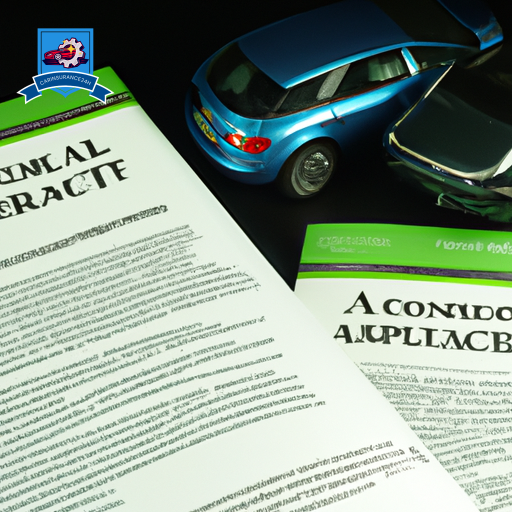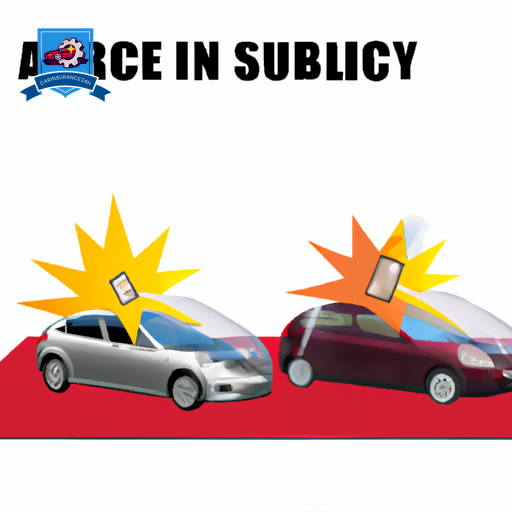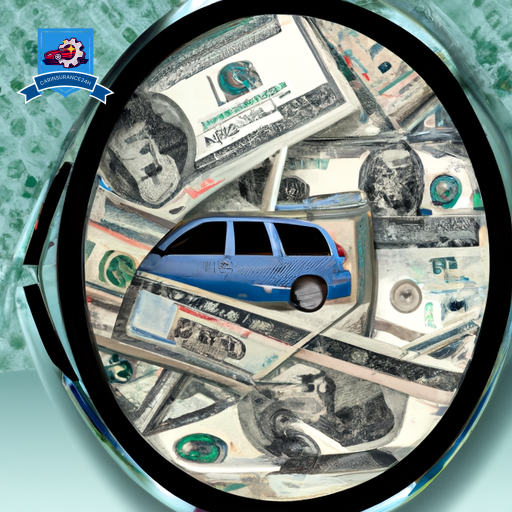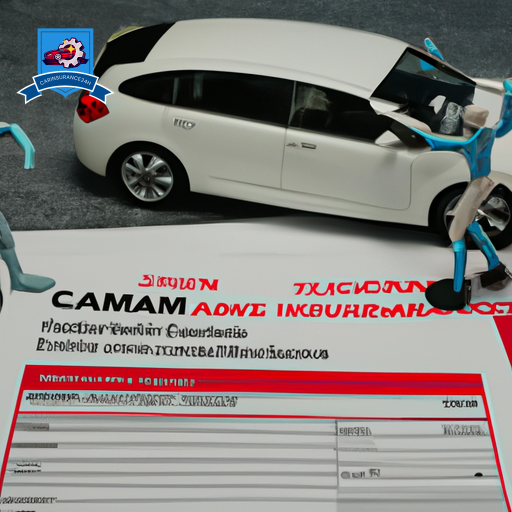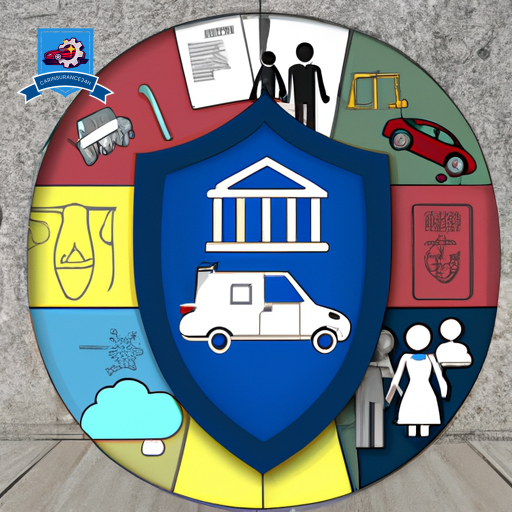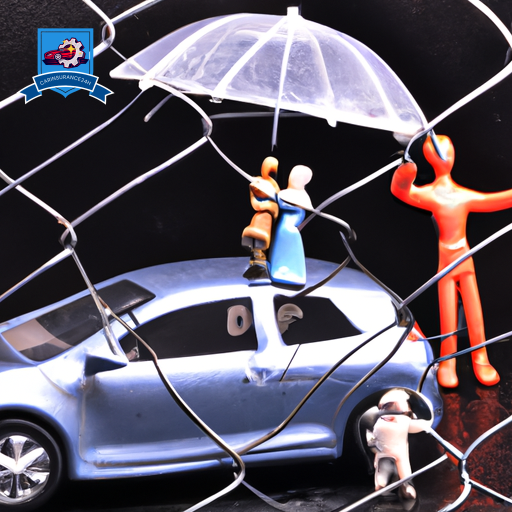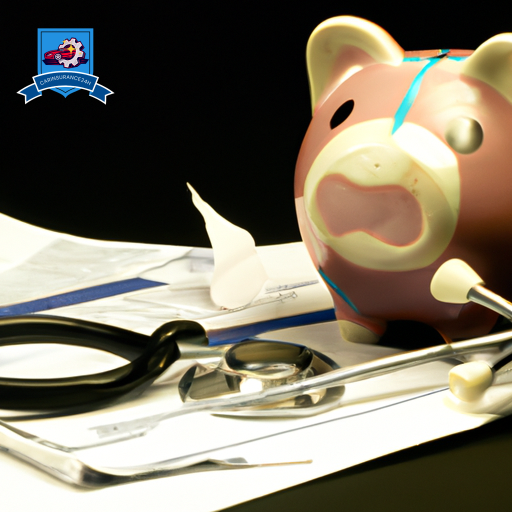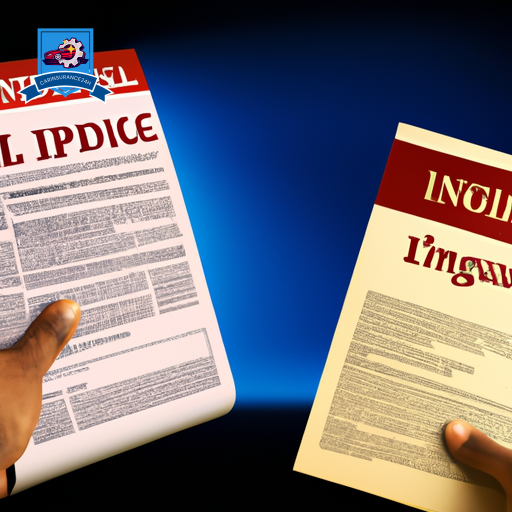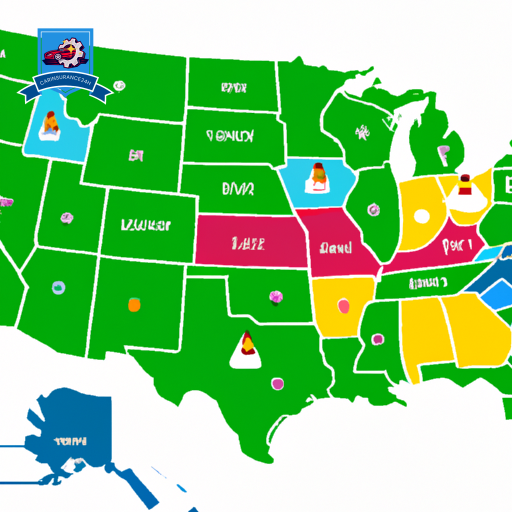When considering the scope of auto insurance policies, a commonly asked question is whether personal injury protection (PIP) is included. PIP, designed to cover medical expenses and, in some cases, lost wages and other damages, regardless of who is at fault in an accident, varies greatly across different states and insurance plans.
The intricacies of state requirements, coupled with the array of policy offerings from insurers, necessitate a detailed examination of one’s own insurance contract to ascertain the extent of PIP coverage. Understanding the distinctions between PIP and medical payments coverage, as well as the potential impact on accident claims, is important for policyholders seeking to fully comprehend their protections and possibly uncover areas where their coverage may be enhanced.
This exploration reveals not only the factual facets of insurance policies but also dispels common misconceptions surrounding PIP coverage.
Understanding PIP Coverage

Personal Injury Protection (PIP) coverage is an essential component of auto insurance policies, offering financial protection for medical expenses, lost wages, and other related costs incurred due to auto accidents, regardless of who is at fault. This coverage supports policyholders by ensuring access to necessary medical treatments without the immediate burden of out-of-pocket expenses, facilitating a smoother recovery process. It typically extends to the insured driver, passengers, and, in certain cases, pedestrians affected by the insured vehicle.
However, it is important to understand the scope of PIP coverage, which includes specific PIP exclusions. Common exclusions comprise injuries sustained while committing a felony, driving under the influence of alcohol or drugs, and incidents involving vehicles owned but not insured under the policy. These limitations underscore the importance of adhering to lawful and safe driving practices to maintain eligibility for PIP benefits.
Coverage extensions, on the other hand, serve to broaden the umbrella of protection provided by PIP. These can include additional medical treatments not commonly covered, such as dental care and psychiatric services, extending beyond the baseline coverage. Some policies may also offer to cover rehabilitation costs and funeral expenses, thereby providing comprehensive financial safeguards against a wide range of post-accident challenges.
PIP Vs. Medical Payments
While both Personal Injury Protection (PIP) and Medical Payments cover medical expenses resulting from auto accidents, they serve distinct roles within a car insurance policy.
PIP coverage extends beyond medical bills to cover lost wages and other non-medical costs, offering broader protection.
In contrast, Medical Payments coverage is strictly limited to medical expenses, without addressing loss of income or other ancillary costs.
PIP Coverage Explained
Understanding the distinction between Personal Injury Protection (PIP) and Medical Payments coverage is essential for drivers seeking thorough car insurance. PIP offers broader protection, covering medical expenses, lost wages, and sometimes funeral costs, regardless of who is at fault in an accident. This coverage can be pivotal in ensuring financial stability following an unforeseen event.
Key aspects of PIP include:
- PIP eligibility: Virtually all occupants of the insured vehicle are covered.
- Coverage exclusions: Certain activities like driving under the influence may negate eligibility.
- PIP may also cover rehabilitation costs.
- In some cases, PIP extends to services like childcare if injuries prevent normal activities.
Understanding these facets helps policyholders make informed decisions about their insurance needs.
Medical Payments Basics
Delving into the world of car insurance, it’s important to differentiate between Medical Payments coverage and Personal Injury Protection (PIP), as both offer unique benefits to policyholders. Medical Payments coverage assists in paying for healthcare costs related to a car accident, regardless of who is at fault. This includes, but is not limited to, hospital visits, surgeries, and X-rays.
Conversely, PIP extends beyond medical expenses, covering additional losses such as lost wages and funeral expenses. Coverage exclusions, a critical aspect to contemplate, vary greatly between the two. While PIP might exclude certain injuries or incidents based on the policy, Medical Payments generally provides a broader scope of coverage for medical costs, making it a crucial component for those seeking all-encompassing protection against the financial impact of auto accidents.
State Requirements for PIP
State requirements for Personal Injury Protection (PIP) vary substantially, with some states mandating its inclusion in auto insurance policies and others offering it as an optional coverage. This distinction is important for drivers to understand as it directly impacts the type of coverage they are either required to have or can choose to add to their insurance policy. Depending on the state, the approach to PIP coverage can greatly affect both the cost and the extent of protection available to motorists and their passengers in the event of an accident.
Mandatory states require all drivers to include PIP in their auto insurance policies. This ensures that, regardless of who is at fault in an accident, medical expenses, and sometimes lost wages and other costs, are covered up to the limit of the policy. On the other hand, in states where PIP is an optional add-on, drivers have the flexibility to choose whether or not to include this coverage based on their specific needs and financial situation.
Key points to take into account include:
- Mandatory states: These jurisdictions require PIP coverage by law, emphasizing its importance in protecting drivers and passengers.
- Optional add-ons: In some states, drivers can choose to add PIP coverage to their policy, offering flexibility but requiring careful thought.
- Coverage limits: The amount of PIP coverage required or available can vary, influencing potential out-of-pocket expenses after an accident.
- Additional coverage: Beyond PIP, drivers may need or want to explore other types of insurance for thorough protection.
Understanding state-specific PIP requirements is essential for drivers to make sure they are adequately covered and compliant with local laws.
Examining Your Policy Details
Given the variability in state requirements for Personal Injury Protection, closely examining the specifics of your policy becomes a key step in ensuring thorough coverage. Many policyholders may not be aware of the intricacies embedded within their agreements, which can have a substantial impact on the extent of their protection in the event of an accident. It is essential to scrutinize the document for any policy exclusions that could limit your coverage in unexpected ways.
Policy exclusions are specific conditions or scenarios under which your insurance provider may not offer coverage. These can range from incidents involving reckless driving to situations where the policyholder is driving under the influence. Understanding these exclusions is critical as it helps in identifying potential gaps in your coverage that might necessitate additional protection.
Coverage upgrades, on the other hand, present an opportunity for policyholders to enhance their level of protection beyond the basic requirements. These upgrades can include increased limits for medical expenses, coverage for lost wages, and even rehabilitation costs. By carefully examining the options available, policyholders can make informed decisions on whether to opt for these additional coverages based on their personal needs and risk exposure.
The Impact on Accident Claims
Understanding the impact on accident claims is essential for policyholders maneuvering the aftermath of a vehicle incident.
This discussion will cover the claim process, highlighting the importance of knowing coverage limits and terms, as well as how injury claims and deductibles interact.
These factors collectively determine the extent of protection and financial responsibility of the insured in the event of an accident.
Claim Process Explained
Handling the claim process is a critical step for individuals seeking compensation after a car accident. This process involves specific steps to make sure that the claim is filed correctly and efficiently. Key aspects include:
-
Documentation submission: Claimants must provide detailed documentation, including medical reports, police reports, and evidence of damages.
-
Understanding claim denial reasons: It’s essential to understand common denial reasons to reduce the risk of claim rejection.
-
Timely filing: Claims must be filed within the specified deadlines to be considered valid.
-
Communication with the insurance company: Maintaining open lines of communication can facilitate the claim process and address any concerns that may arise.
These components are essential in navigating the complexities of the claim process, aiming to secure the compensation deserved.
Coverage Limits and Terms
After exploring the claim process, it is important to examine how coverage limits and terms greatly influence the outcome of accident claims. Coverage limits define the maximum amount an insurance company will pay for a claim. Policy exclusions specify situations or types of damage not covered, directly affecting the scope of protection.
For instance, if an accident occurs under circumstances listed as exclusions, the insurer may deny the claim, leaving the policyholder financially responsible. Additionally, terms of the policy dictate the conditions under which coverage is applicable, including premium adjustments.
Premium adjustments are often a result of changes in coverage limits or after a claim has been filed, impacting the cost of the policy and the extent of protection offered.
Injury Claims and Deductibles
When filing an injury claim, deductibles play a critical role in determining the financial responsibility of the policyholder in the event of an accident. The amount of the deductible directly impacts the overall financial burden on the insured, influencing decisions related to claims and repairs. Understanding how deductibles interact with injury claims is vital for policyholders.
-
Roadside assistance: Often, policies include roadside assistance, which can mitigate some costs without affecting the deductible.
-
Collision repair: Deductibles primarily affect the cost of collision repairs, directly influencing out-of-pocket expenses.
-
Policy adjustments: Policyholders can adjust their deductibles, balancing premium costs against potential claim expenses.
-
Claim impact: Higher deductibles typically lead to lower premiums but increase out-of-pocket costs during a claim, affecting decisions on when to seek repairs or assistance.
Enhancing Your Coverage
To enhance your car insurance coverage, it is advisable to contemplate adding personal injury protection to your policy. Personal injury protection, or PIP, offers several benefits that can greatly impact your financial stability and peace of mind in the event of an accident. Among the first enhancements to contemplate are discount benefits and roadside assistance. Discount benefits can reduce your premium costs when you bundle PIP with your existing car insurance policy. Roadside assistance, often overlooked, provides invaluable help during unexpected vehicle breakdowns, further safeguarding you and your family.
| Enhancement Option | Description | Key Benefit |
|---|---|---|
| Discount Benefits | Reduced premiums for bundling PIP with existing coverage | Lower overall insurance costs |
| Roadside Assistance | Assistance during vehicle breakdowns, including towing and tire changes | Increased safety and convenience |
| Customizable Limits | Option to adjust the coverage limits of your PIP policy | Tailored protection to meet individual needs |
Enhancing your car insurance with PIP not only provides essential support during accidents but also offers customizable limits. This flexibility allows policyholders to tailor their coverage to meet specific needs, ensuring that they are neither underinsured nor paying for unnecessary coverage. By carefully selecting the right enhancements, you can create a detailed insurance package that delivers both protection and value.
Common PIP Coverage Misconceptions
Despite widespread availability, there exists a common misconception among policyholders that personal injury protection (PIP) coverage is redundant if they already possess health insurance. This belief underestimates the comprehensive nature of PIP, which extends beyond mere medical payments to cover a range of costs resulting from auto accidents. It’s essential to dispel common myths and understand the reality of PIP coverage to fully appreciate its value.
Key misconceptions include:
-
Rental car myths: Many believe that PIP does not cover incidents involving rental cars. However, in most cases, PIP extends to accidents occurring in rented vehicles, offering the same level of protection as for the policyholder’s own car.
-
Coverage exceptions: A prevailing myth suggests that PIP only covers specific, less severe injuries. In truth, PIP coverage is designed to cover a broad spectrum of medical expenses, regardless of the injury’s severity, provided it results from a covered auto accident.
-
Overlap with health insurance: Some policyholders mistakenly think that having health insurance makes PIP unnecessary. While health insurance covers medical bills, PIP can cover additional expenses such as lost wages and rehabilitation costs, which health insurance typically does not.
-
Fault misconceptions: Another common misunderstanding is that PIP coverage is only applicable if the policyholder is not at fault in the accident. PIP, however, is often referred to as ‘no-fault’ coverage, meaning it can provide benefits regardless of who caused the accident.
Understanding these misconceptions about PIP coverage is critical for policyholders to make informed decisions about their insurance needs, ensuring they are adequately protected in the event of an auto accident.
Frequently Asked Questions
How Does PIP Coverage Affect My Premiums if I’ve Previously Been in an Accident or Have a History of Traffic Violations?
PIP coverage can elevate premiums, akin to a seasoned driver sailing a stormy sea. Insurers often assess risk, where a history of accidents or violations might lead to higher costs, albeit some offer violation forgiveness.
Can PIP Coverage Benefits Be Utilized if I’m Injured as a Pedestrian or While Using Public Transportation?
Personal Injury Protection (PIP) coverage can indeed be utilized for injuries sustained as a pedestrian or while using public transportation, contingent on the specific terms of the policy and applicable pedestrian safety and public transportation policies.
Are There Any Tax Implications or Benefits Associated With Claiming PIP Coverage for Medical Expenses or Lost Wages?
Claiming Personal Injury Protection (PIP) coverage for medical expenses or lost wages can be like maneuvering a complex maze regarding tax implications or benefits. Tax deductions and benefit eligibility vary, requiring structured, fact-based evaluation.
How Does PIP Coverage Interact With Health Insurance Plans, Especially Those With High Deductibles or Specific Network Restrictions?
Personal Injury Protection (PIP) coverage often supplements health insurance by covering expenses within its coverage limits, notwithstanding policy exclusions. It can be particularly beneficial for plans with high deductibles or strict network restrictions.
In What Scenarios Might PIP Coverage Extend to Family Members or Individuals Living in the Same Household Who Are Not Named on the Policy?
Amidst policy exclusions and coverage limits, PIP may extend to family members or other household residents not listed on the policy, primarily in scenarios where their direct involvement in an incident triggers the coverage’s applicability.

